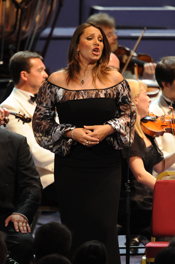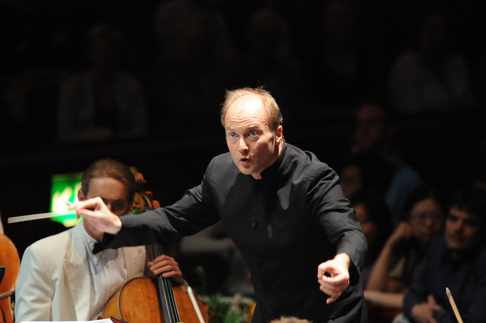Recently in Performances
English Touring Opera are delighted to announce a season of lyric monodramas to tour nationally from October to December. The season features music for solo singer and piano by Argento, Britten, Tippett and Shostakovich with a bold and inventive approach to making opera during social distancing.
This tenth of ten Live from London concerts was in fact a recorded live performance from California. It was no less enjoyable for that, and it was also uplifting to learn that this wasn’t in fact the ‘last’ LfL event that we will be able to enjoy, courtesy of VOCES8 and their fellow vocal ensembles (more below …).
Ever since Wigmore Hall announced their superb series of autumn concerts, all streamed live and available free of charge, I’d been looking forward to this song recital by Ian Bostridge and Imogen Cooper.
Although Stile Antico’s programme article for their Live from London recital introduced their selection from the many treasures of the English Renaissance in the context of the theological debates and upheavals of the Tudor and Elizabethan years, their performance was more evocative of private chamber music than of public liturgy.
Evidently, face masks don’t stifle appreciative “Bravo!”s. And, reducing audience numbers doesn’t lower the volume of such acclamations. For, the audience at Wigmore Hall gave soprano Elizabeth Llewellyn and pianist Simon Lepper a greatly deserved warm reception and hearty response following this lunchtime recital of late-Romantic song.
For this week’s Live from London vocal recital we moved from the home of VOCES8, St Anne and St Agnes in the City of London, to Kings Place, where The Sixteen - who have been associate artists at the venue for some time - presented a programme of music and words bound together by the theme of ‘reflection’.
'Such is your divine Disposation that both you excellently understand, and royally entertaine the Exercise of Musicke.’
‘And there was war in heaven: Michael and his angels fought against the dragon; and the dragon fought and his angels, And prevailed not; neither was their place found any more in heaven … that old serpent … Satan, which deceiveth the whole world: he was cast out into the earth, and his angels were cast out with him.’
There was never any doubt that the fifth of the twelve Met Stars Live in Concert broadcasts was going to be a palpably intense and vivid event, as well as a musically stunning and theatrically enervating experience.
‘Love’ was the theme for this Live from London performance by Apollo5. Given the complexity and diversity of that human emotion, and Apollo5’s reputation for versatility and diverse repertoire, ranging from Renaissance choral music to jazz, from contemporary classical works to popular song, it was no surprise that their programme spanned 500 years and several musical styles.
The Academy of St Martin in the Fields have titled their autumn series of eight concerts - which are taking place at 5pm and 7.30pm on two Saturdays each month at their home venue in Trafalgar Square, and being filmed for streaming the following Thursday - ‘re:connect’.
The London Symphony Orchestra opened their Autumn 2020 season with a homage to Oliver Knussen, who died at the age of 66 in July 2018. The programme traced a national musical lineage through the twentieth century, from Britten to Knussen, on to Mark-Anthony Turnage, and entwining the LSO and Rattle too.
With the Live from London digital vocal festival entering the second half of the series, the festival’s host, VOCES8, returned to their home at St Annes and St Agnes in the City of London to present a sequence of ‘Choral Dances’ - vocal music inspired by dance, embracing diverse genres from the Renaissance madrigal to swing jazz.
Just a few unison string wriggles from the opening of Mozart’s overture to Le nozze di Figaro are enough to make any opera-lover perch on the edge of their seat, in excited anticipation of the drama in music to come, so there could be no other curtain-raiser for this Gala Concert at the Royal Opera House, the latest instalment from ‘their House’ to ‘our houses’.
"Before the ending of the day, creator of all things, we pray that, with your accustomed mercy, you may watch over us."
The doors at The Metropolitan Opera will not open to live audiences until 2021 at the earliest, and the likelihood of normal operatic life resuming in cities around the world looks but a distant dream at present. But, while we may not be invited from our homes into the opera house for some time yet, with its free daily screenings of past productions and its pay-per-view Met Stars Live in Concert series, the Met continues to bring opera into our homes.
Music-making at this year’s Grange Festival Opera may have fallen silent in June and July, but the country house and extensive grounds of The Grange provided an ideal setting for a weekend of twelve specially conceived ‘promenade’ performances encompassing music and dance.
There’s a “slide of harmony” and “all the bones leave your body at that moment and you collapse to the floor, it’s so extraordinary.”
“Music for a while, shall all your cares beguile.”
The hum of bees rising from myriad scented blooms; gentle strains of birdsong; the cheerful chatter of picnickers beside a still lake; decorous thwacks of leather on willow; song and music floating through the warm evening air.
Performances

26 Aug 2008
Prom 34 — Puccini's Il Tabarro; Rachmaninov's Symphony no. 1
In a nod to the 150th anniversary of Puccini's birth, the Manchester-based BBC Philharmonic Orchestra visited the Proms with their chief conductor, Gianandrea Noseda, for a performance of the first opera of Il trittico.
Although it's often labelled as a melodrama, Tabarro is more subtle than that – a study of unfulfilled, rootless people – and even besides the obvious orchestral sound-effects like the boats' horns and out-of-tune barrel-organ, the musical scene-setting has an impressionistic colour palette unmatched anywhere else in Puccini's canon. This strong and richly evocative raw material gives the opera an advantage in holding its own when scenery and costumes are stripped away and the piece is presented in concert form, as it was here.
Lado Ataneli's Michele was a bit stiff – the traditional concert dress of white tie and tails really doesn't encourage dramatic verisimilitude – but if anything this added to his portrayal of a man who has found himself the wrong side of an emotional barrier in his marriage. Barbara Frittoli conveyed youth more readily than the heavier lirico-spinto sopranos conventionally cast as Giorgetta, and she made a beautiful sound, remaining fully in character even when not singing. There was a warmth to her portrayal which gave a real sense of how out of place this young and passionate city girl is in her life of drudgery in the harsh world of the stevedores. Together, their vocal partnership was ideal; Ataneli's baritone had a dry darkness which only blossomed into warmer lyricism during his plea for Giorgetta to spend the evening with him as in days gone by, while at the same moment, Frittoli's expansive lyricism gave way to a colder, harsher delivery.
The Slovakian tenor Miroslav Dvorsky's full-force singing – sometimes to the extent that he cracked fortissimo high notes – had a brittleness which suited the embittered Luigi.
The smaller, 'character' roles were luxuriously cast, with Jane Henschel as Frugola, Barry Banks as Tinca (hamming up the waltz scene for all it was worth) and Alistair Miles as Talpa. The programme notes gave the names in their literal English translations – Ferret, Tench and Mole. Allan Clayton as the Ballad-Seller and Edgaras Montvidas and Katherine Broderick as the young lovers all gave good lyrical value.
Prior to the interval, the curtain-raiser – which, although it is perhaps unfair to refer to it so dismissively, is how it felt – was Rachmaninov's first symphony, a work which the 22-year-old composer considered a disaster at its premiere, and of which he remained deeply critical throughout his life. Here, after some fluffs and ensemble problems at the start of the opening movement, the BBC Philharmonic made a persuasive case for it; it had a propulsive energy and drive, and it is difficult to imagine any of the BBC's other orchestras producing such a forceful and rich brass sound in the cross-rhythmed fanfares of the last movement.
 Gianandrea Noseda
Gianandrea Noseda
We had Gianni Schicchi at the Proms in 2004, also paired with a Rachmaninov piece – his opera The Miserly Knight (both performed by Glyndebourne Festival Opera). Is it too much to hope that Suor Angelica – which has never been performed at a Prom – might complete the triptych before too long? Perhaps, knowing the Proms' preoccupation with anniversaries, we will have to wait another ten years until its centenary.
Ruth Elleson © 2008

